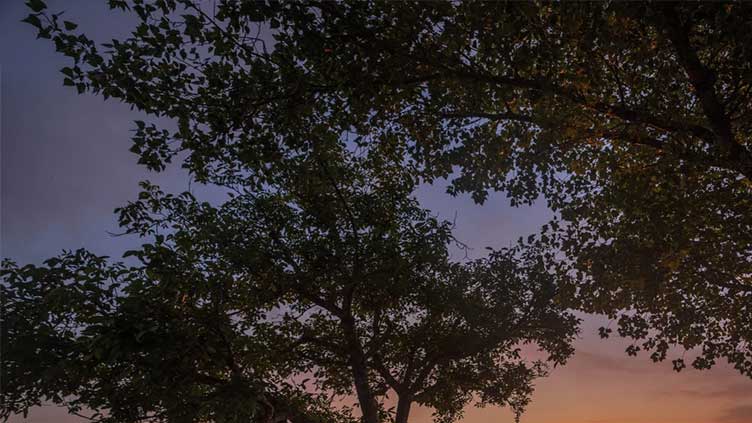Lebanon's Christians feel the heat of climate change in its sacred forest and valley

World
Lebanon’s Christians feel the heat of climate change in its sacred forest and valley
BCHARRE, Lebanon (AP) — Majestic cedar trees towered over dozens of Lebanese Christians gathered outside a small mid-19th century chapel hidden in a mountain forest to celebrate the Feast of the Transfiguration, the miracle where Jesus Christ, on a mountaintop, shined with light before his disciples.
The sunset’s yellow light coming through the cedar branches bathed the leader of Lebanon’s Maronite Church, Patriarch Beshara al-Rai, as he stood at a wooden podium and delivered a sermon. Then the gathering sang hymns in Arabic and the Aramaic language.
For Lebanon’s Christians, the cedars are sacred, these tough evergreen trees that survive the mountain’s harsh snowy winters. They point out with pride that Lebanon’s cedars are mentioned 103 times in the Bible. The trees are a symbol of Lebanon, pictured at the center of the national flag.
The iconic trees in the country’s north are far from the clashes between Hezbollah militants and Israeli troops along the Lebanon-Israel border in recent weeks against the backdrop of the Israel-Hamas war. The Lebanese government says Israel’s use of white phosphorus and other incendiary weapons has burned tens of thousands of olive trees and other crops in the border area, and impoverished Lebanese farmers fear the shells have contaminated their soil.
The long-term survival of Lebanon’s cedar forests is in doubt, as rising temperatures due to climate change threaten to wipe out biodiversity and scar one of the country’s most iconic heritage sites for its Christians. (Dec. 5) (AP video by Fay Abuelgasim)
But the long-term survival of the cedar forests is in doubt for another reason, as rising temperatures due to climate change threaten to wipe out biodiversity and scar one of the country’s most iconic heritage sites for its Christians.
The lush Cedars of God Forest, some 2000 meters (6,560 feet) above sea level near the northern town of Bcharre, is part of a landscape cherished by Christians. The preserve overlooks the Kadisha Valley -- Aramaic for “sacred” – where many Christians took refuge from persecution over Lebanon’s tumultuous history. One of the world’s largest collections of monasteries remains hidden among the thick trees, caves and rocky outcroppings along the deep, 35-kilometer (22-mile) valley.
The United Nations’ culture agency UNESCO in 1998 listed both the cedar forest and the valley as World Heritage Sites. They’ve become popular destinations for hikers and environmentalists from around the world. A growing number of Lebanese of all faiths visit as well, seeking fresh air away from the cities.
“People from all religions visit here, not just Christians … even Muslims and atheists,” said Hani Tawk, a Maronite Christian priest, as he showed a crowd of tourists around the Saint Elisha monastery. “But we as Christians, this reminds us of all the saints who lived here, and we come to experience being in this sacred dimension.”
Environmentalists and residents say the effects of climate change, exacerbated by government mismanagement, pose a threat to the ecosystem of the valley and the cedar forest.
“Thirty or 40 years from now, it’s quite possible to see the Kadisha Valley’s biodiversity, which is one of the richest worldwide, become much poorer,” Charbel Tawk, an environmental engineer and activist in Bcharre – unrelated to Hani Tawk -- told The Associated Press
Lebanon for years has felt the heat of climate change, with farmers decrying lack of rain, and forest fires wreaking havoc on pine forests north of the country, similar to blazes that scorched forests in neighboring Syria and nearby Greece. Residents across much of the country, struggling with rampant electricity cuts, could barely handle the summer’s soaring heat.
Temperatures have been above 30 degrees Celsius (86 degrees Fahrenheit) in Bcharre, not uncommon along Lebanon’s coastal cities but unusual for the mountainous northern town.


